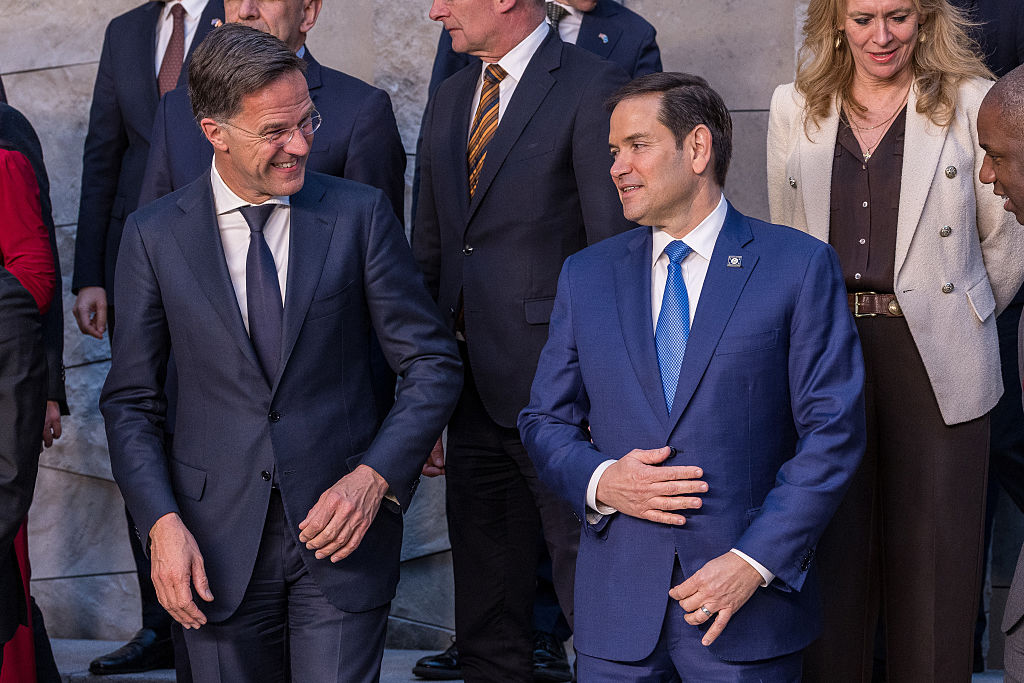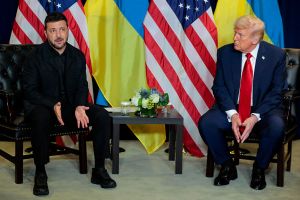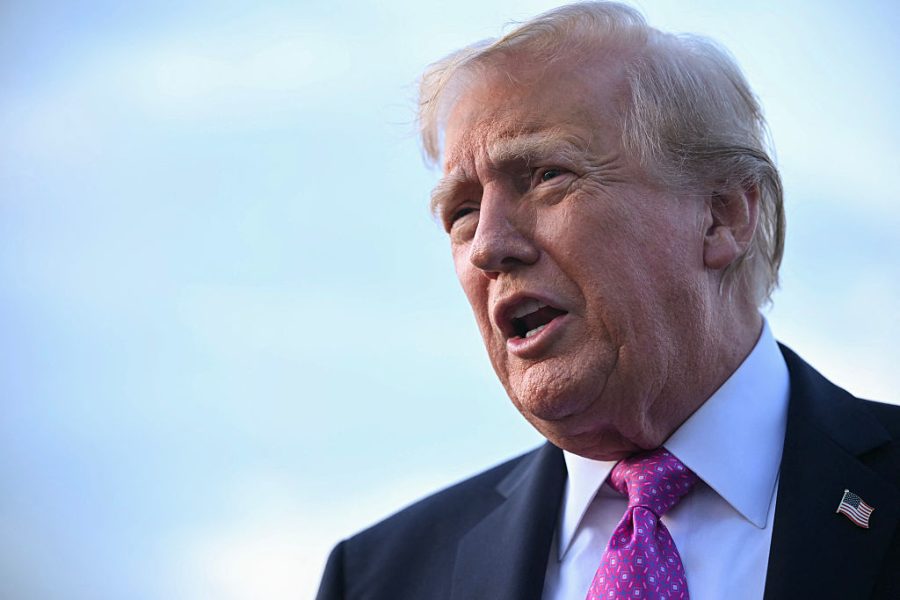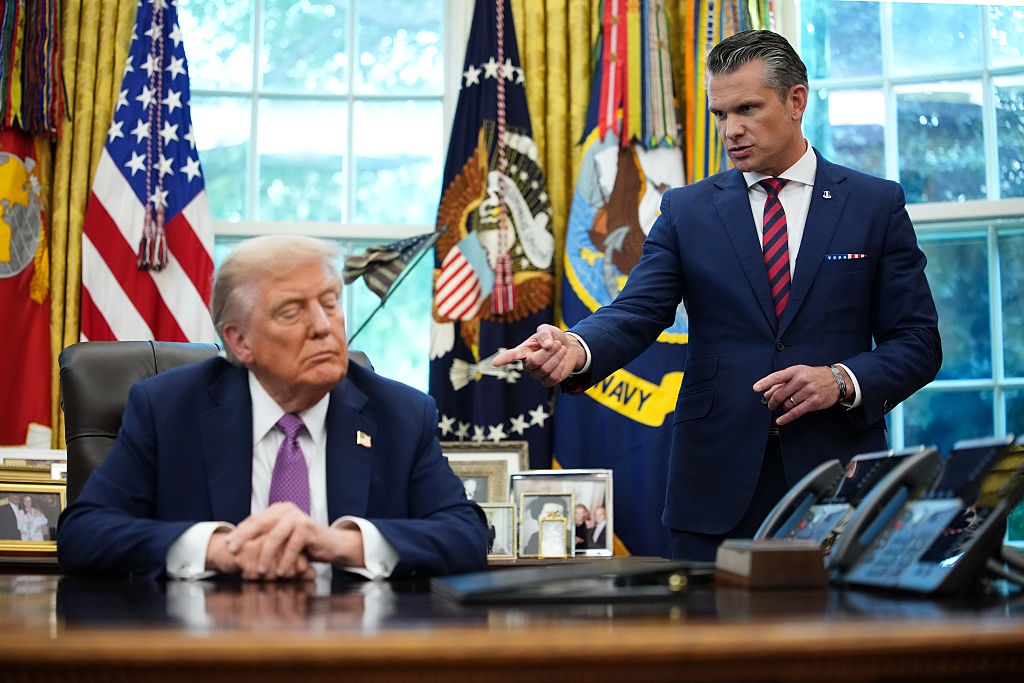Secretary of State Marco Rubio’s trip to NATO headquarters in Brussels couldn’t have been easy for either Rubio or the Europeans.
The normally copacetic relationship between the United States and Europe isn’t in shambles as the more overly sensitive lawmakers and pundits would have you believe. But it’s not exactly rosy either. European policy elites for the most part like to downplay their differences with Trump’s Washington and emphasize the positive, but it’s hard to be a European politician these days and not be terrified of the future.
A day before Trump sent Rubio across the Atlantic, he slapped 20 percent tariffs on the European Union and bashed the institution, yet again, as “pathetic” (Brussels has vowed to retaliate with its own tariffs on US goods). Trump and Vice President J.D. Vance keep talking about annexing Greenland into the American Republic, about which the dependable Danes have justifiably gotten red-faced. Meanwhile, a leaked groupchat on US strikes against the Houthis in Yemen revealed the Veep disgusted that Washington was, in his words, “bailing Europe out again” by taking charge of freedom of navigation in the Red Sea. And Trump isn’t getting any more patient with European defense spending over time; his demand that NATO states spend a minimum of 5 percent of GDP on their militaries remains beyond their fiscal capacity and so would require them to do one of two things: cut money from fat entitlement programs or take on boatloads of debt.
Rubio’s task was twofold: deliver Trump’s message about burden-shifting and pulling its own weight, but in a way that won’t cause European heads to explode. He tried to reassure Washington’s NATO allies with conventional talking-points about the transatlantic family being as strong as it ever was. “The United States is in NATO,” Rubio said alongside NATO Secretary-General Mark Rutte. It “is as active in NATO as ever, and some of this hysteria and hyperbole that I see… is unwarranted.” This is perfectly in-keeping with Rubio’s brand. He’s the most sympathetic Atlanticist the Trump administration has. Indeed, during his time in the Senate, he voted for an amendment that would prevent any US president from withdrawing from NATO without congressional approval (Vance, it should be said, was also in the upper chamber at the time and voted against it).
Rubio, however, needs to walk a fine line. For the most part, he did. It’s Trump, after all, who’s the president – and Trump is not shy about expressing his misgivings on the way NATO works as an organization and how most of its members (the UK, France, Poland and the three Baltic states being the exception) are content with sitting on their behinds while the United States does most of the work. Bashing NATO, or at least the current configuration of NATO, is one of Trump’s favorite go-to lines, to the horror of establishment foreign policy types whose version of a nightmare is moving one iota from the decades-long status-quo.
Trump’s torrent of negativity has gotten Europe’s attention. Some, like NATO Secretary-General Rutte, actually seem sympathetic to what Trump is trying to do. Others, like French President Emmanuel Macron, are using Trump’s words and actions – including a short-lived suspension of US military and intelligence support for Ukraine – to reiterate an argument he has promoted as soon as they stepped into the Élysée Palace in 2017: Europe needs to stop acting like a basement-dwelling thirty-something who consistently takes mommy and daddy’s money and begin the process of acting like a grown-up in an often pernicious world. Strategic independence from the United States, Macron’s calling card, is the last thing Poland, Italy, Germany and the Baltics want. But there may come a time when it’s inevitable whether they like it or not.
We’re not there yet of course. Senior US officials are still showing up to NATO meetings. The US still has around 100,000 troops on the continent, and Trump thus far hasn’t made any changes to those numbers in the roughly two months he’s been in the White House. In the first term, he made a lot of noise and threats about removing the US from the alliance and refusing to participate in inter-alliance military exercises if the allies didn’t inject more cash into their defense budgets. Even so, the actions didn’t match the words. In the end, US policy on NATO was quite traditional – most of the troops the President attempted to withdraw from Germany were designated to be re-deployed to other areas of the continent.
Could the second term wind up similar to the first? It’s possible, and you can bet that Eastern Europe is hoping that Trump somehow gets distracted, comes to the realization that European security is important or agrees to stick around in exchange for higher European military spending.
Yet it would be foolish for Europe to act on hope alone. European governments have begun discussions among themselves on what kinds of alternative structures, both political as well as military, should be built to maintain deterrence and keep the continent whole, free and at peace in the event Washington downgrades Europe on its list of priorities. Those talks need to continue, and they need to actually result in something concrete, with meat on the bones and long-term financing to ensure that whatever structure is built can actually last over the long term.
In public, Rubio decided not to the press the point. Hopefully he did so in private


























Leave a Reply